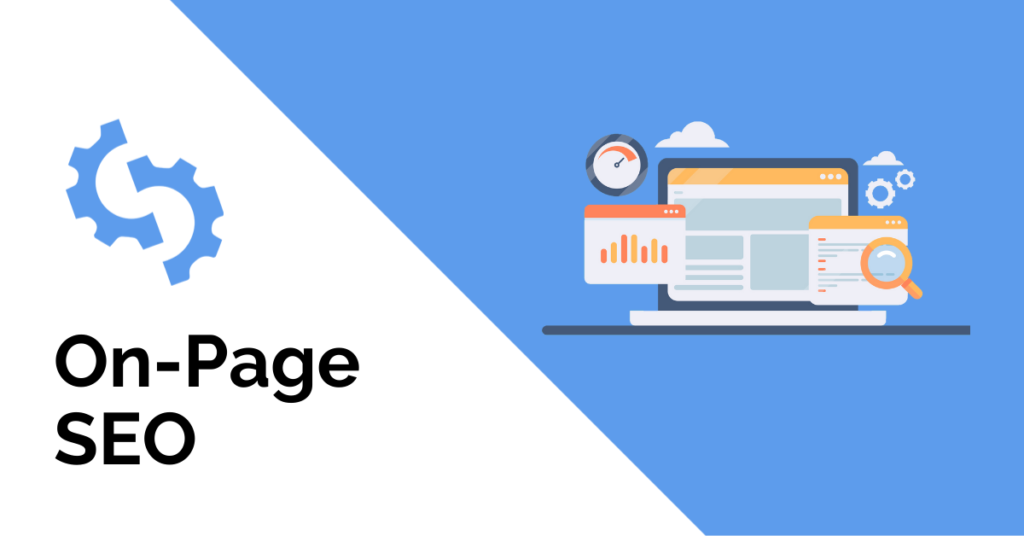On-Page SEO
Welcome to our comprehensive guide on on-page SEO, a crucial aspect of optimizing your website for search engines. In this section, we will introduce you to the concept of on-page SEO and explain its significance in improving your website’s visibility, organic search rankings, and overall user experience.
Understanding On-Page SEO
In this section, we delve into the fundamentals of on-page SEO. We explain what on-page SEO entails and how it differs from other SEO techniques. On-page SEO refers to optimizing individual web pages to improve their relevance, usability, and visibility in search engine results. Key elements of on-page SEO include keyword research and optimization, creating high-quality and engaging content, optimizing meta tags (such as title tags and meta descriptions), improving website architecture and navigation, enhancing page loading speed, and ensuring mobile-friendliness.

Benefits of On-Page SEO
“Implementing effective on-page SEO techniques offers numerous benefits for your website. Let’s explore some of the key advantages”
Higher Search Engine Rankings
Optimizing your web pages according to on-page SEO best practices can improve your chances of ranking higher in search engine results. By providing search engines with relevant and well-structured content, you increase the visibility of your website to potential visitors
Increased Organic Traffic
When your website ranks higher in search results, it attracts more organic traffic. Users are more likely to click on links that appear on the first page of search engine results, leading to an influx of targeted visitors to your site
Improved User Experience
On-page SEO techniques focus on enhancing user experience by making your website more user-friendly and accessible. This includes optimizing page load times, creating easy-to-navigate site structures, and ensuring mobile responsiveness. A positive user experience leads to longer visit durations, increased engagement, and higher conversion rates.
Better Click-Through Rates
Well-optimized meta tags, such as compelling title tags and informative meta descriptions, can significantly impact click-through rates from search engine results pages. When your listings stand out and provide valuable information, users are more likely to click on your links, driving more traffic to your website.
Measuring and Monitoring On-Page SEO Success
Tracking and analyzing the effectiveness of your on-page SEO efforts is crucial for ongoing optimization. In this section, we introduce various tools and techniques to measure and monitor your on-page SEO success. We discuss tools for keyword tracking, website analytics, and user behavior analysis. By regularly monitoring and analyzing your on-page SEO performance, you can identify areas for improvement and make data-driven decisions.
On-Page SEO Best Practices for Different Scenarios
On-page SEO strategies may vary depending on the nature of your website and goals. In this section, we provide tailored best practices for different scenarios, such as e-commerce websites, local businesses, content publishers, and service-based businesses. We offer insights and recommendations specific to each scenario, enabling you to optimize your on-page SEO efforts for maximum impact.
